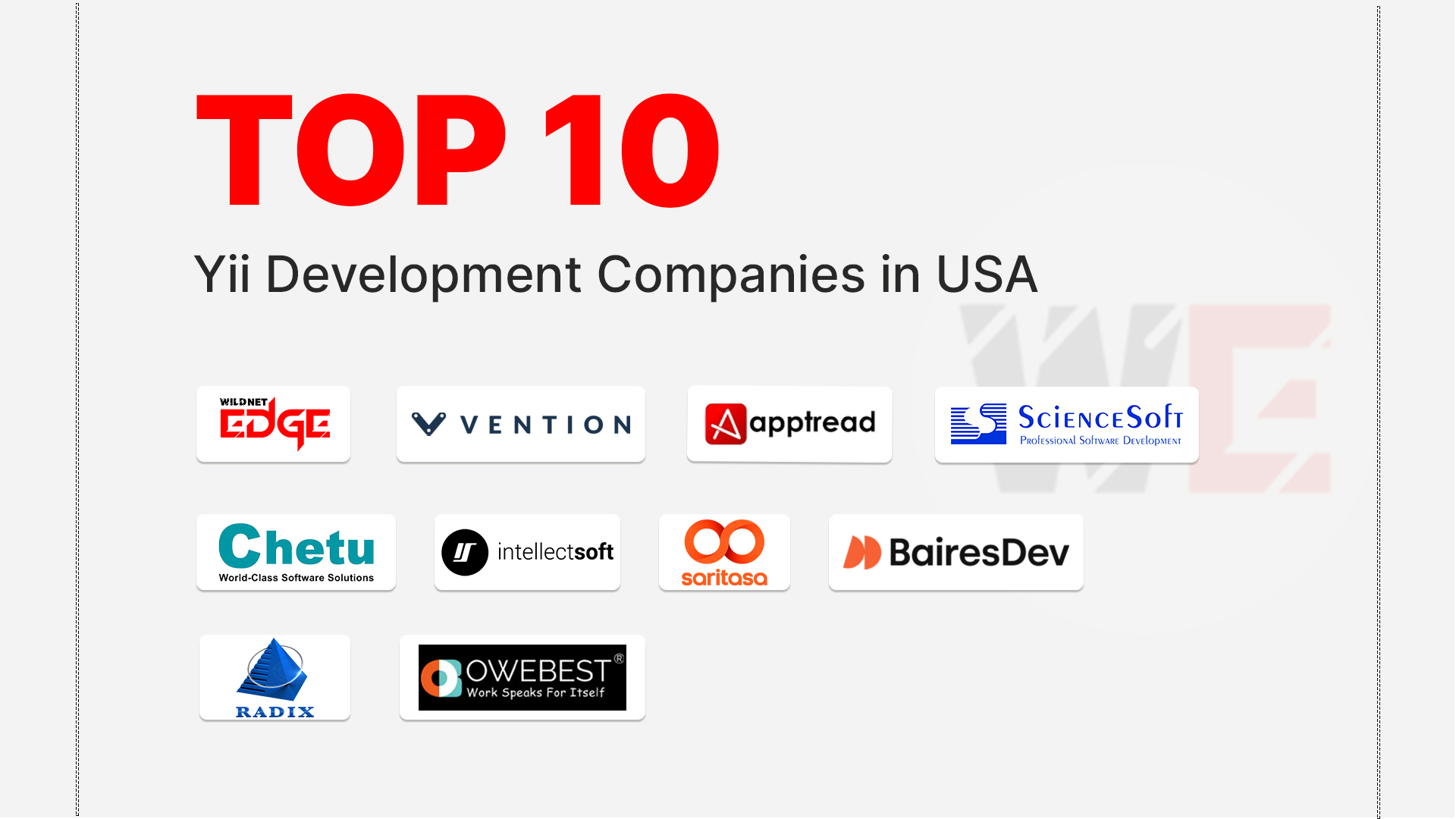TL;DR
The article highlights the practical impact of artificial intelligence in business, showing how AI benefits both startups and large enterprises. It covers industry-specific applications like fraud detection (finance), hyper-personalisation (retail), predictive diagnostics (healthcare), and operational efficiency (manufacturing). It also addresses common adoption challenges, including data quality and talent shortages, and emphasizes that a strategic, expert-driven approach is key to successful AI implementation and maximizing ROI.
In 2025, artificial intelligence in business has become an everyday concept, a present-day reality and the primary engine of competitive advantage. From agile startups to global enterprises, companies use AI to automate processes, uncover deep insights from data, and create radically new customer experiences. For business leaders, the question is no longer “if” they should adopt AI, but “where” and “how” to deploy it for the greatest impact. This guide explores the most valuable AI use cases across key industries.
What is Artificial Intelligence in Business?
At its core, artificial intelligence in business refers to the use of intelligent computer systems to perform tasks that typically require human intelligence. This is far beyond simple automation. While traditional software follows pre-programmed rules, AI systems can learn, adapt, and make predictions. This capability allows businesses to move from simply being reactive to becoming proactive and predictive in their operations, sales, and customer service strategies. The strategic implementation of AI in business is what separates market leaders from followers. When supported by clear metrics and AI ROI measurement, organizations can ensure that their AI initiatives deliver meaningful business value.
The Transformative Power of Enterprise AI
For larger organizations, a coordinated enterprise AI strategy can unlock transformative value across the entire business. The benefits are not just incremental; they are exponential. This is why many companies now integrate AI strategy for business transformation into their core digital roadmap.
- Unprecedented Operational Efficiency: AI can automate complex workflows, from supply chain logistics to back-office financial reconciliation, reducing costs and reducing the load from humans for more strategic work.
- Data-Driven Decision-Making: AI algorithms can analyze vast datasets to identify patterns, trends, and anomalies that are invisible to the human eye. This enables leaders to make faster, more accurate decisions based on data.
- Hyper-Personalized Customer Experiences: AI allows you to understand and anticipate the needs of individual customers at scale. This capability is central to modern marketing and customer retention efforts.
Real-World AI Applications by Industry
The true power of AI in business is best understood through its practical applications. Here’s a look at some of the most impactful AI applications by industry.
Finance: From Fraud Detection to Algorithmic Trading
The financial sector first adopted AI, using it to manage risk and improve efficiency. Machine learning models can analyze thousands of transactions per second to detect fraudulent activity in real time with incredible accuracy. In investment, AI algorithms utilise high-frequency trading and help portfolio managers identify market opportunities. This is a field where expert Machine Learning Development services are critical.
Retail & eCommerce: Personalizing the Customer Journey
AI is the core behind the personalized shopping experiences that customers now expect. Recommendation engines, like those used by Amazon and Netflix, use AI to suggest products based on a user’s browsing history and past purchases. AI optimizes supply chains by forecasting demand and managing inventory, reducing stockouts and overstocking.
Healthcare: Enhancing Diagnostics and Patient Care
AI is revolutionizing healthcare by improving diagnostic accuracy and personalizing treatment plans. AI-powered imaging tools can detect signs of diseases like cancer in medical scans with a level of precision that can surpass human experts. Furthermore, AI helps hospitals optimize their operations by predicting patient admission rates and managing bed allocation.
Manufacturing: Building the Smart Factory
In manufacturing, AI is the brain of the “smart factory.” Predictive maintenance algorithms analyze data from IoT sensors on machinery to predict when a part is likely to fail, allowing for proactive repairs that prevent costly downtime. AI-powered visual inspection systems automate quality control on the assembly line, identifying defects far faster and more accurately than the human eye.
Navigating the Challenges of AI Adoption
While the benefits are clear, the path to successful AI adoption is not without its challenges. The most common hurdles include poor data quality, a shortage of skilled AI talent, and the difficulty of integrating new AI systems with legacy technology. Overcoming these challenges requires a clear strategy and often involves the interventions of AI Development company to bridge the expertise gap. A well-planned approach ensures that your journey into AI in business is smooth and effective.
Our AI in Business Services in Action: Case Studies
Case Study 1: An Insurance Startup’s Automation Engine
- The Challenge: A new insurance startup needed to process thousands of claims documents quickly and accurately but lacked the massive staff of its incumbent competitors.
- Our Solution: We provided end-to-end services for AI for Automation. We developed a custom AI solution that used Natural Language Processing (NLP) to read, understand, and extract key information from claims forms, automatically flagging them for approval or further review.
- The Result: The startup was able to process claims 85% faster than the industry average, with a 99% accuracy rate. This operational efficiency was their key competitive advantage, allowing them to scale rapidly.
Case Study 2: A Retail Giant’s Supply Chain Optimization
- The Challenge: A large retail corporation was struggling with inventory management across its hundreds of stores, leading to frequent stockouts of popular items and overstocking of others.
- Our Solution: We built a sophisticated demand forecasting model as part of a larger Enterprise App Development project. The AI analyzed historical sales data, weather patterns, and local events to predict demand for thousands of products at each individual store.
- The Result: The company reduced its inventory holding costs by 18% and improved its in-stock availability by 25%. The accurate forecasting led to higher sales and a more efficient supply chain.
Our Technology Stack for AI Solutions
We use a modern, scalable stack to build and deploy robust AI solutions.
- AI & Machine Learning: TensorFlow, PyTorch, Scikit-learn, Keras
- Cloud AI Platforms: Google Cloud AI, Microsoft Azure AI, AWS AI Services
- Data Processing: Apache Spark, Databricks, Snowflake
- MLOps: Kubeflow, MLflow, Amazon SageMaker
- Programming Languages: Python, R
Conclusion
Artificial intelligence is a fundamental value driver in business in the modern economy. From optimizing operations to creating deeply personal customer experiences, the range of AI applications by industry is vast and growing. However, successful AI adoption requires more than just technology; it demands a strategic vision and a clear plan for execution.
Ready to transform your business with a data-driven strategy? Connect with Wildnet Edge today. Our AI-first approach ensures we don’t just build applications; we build intelligent Software Development Solutions that learn, adapt, and provide a sustainable competitive advantage for your enterprise.
FAQs
The ROI of artificial intelligence in business varies by use case but is often significant. It can come from direct cost savings through automation, increased revenue from improved sales and marketing, or risk reduction from enhanced fraud detection. A well-defined pilot project should have clear KPIs to measure its specific financial impact.
You can start small. The key is to pick a specific, high-impact business problem where even a small amount of data can provide value. Many cloud platforms offer pre-trained AI models that can be adapted for your needs with a relatively small investment, lowering the barrier to entry for AI adoption.
The more common reality is that AI augments the workforce, rather than replacing it. It automates the repetitive, low-value tasks, which frees up your employees to focus on more creative, strategic, and relationship-oriented work that requires a human touch.
The biggest mistake is the “technology in search of a problem” approach. Many companies adopt an AI tool without a clear business goal. A successful enterprise AI strategy always starts with a critical business problem and works backward to the technology.
A well-defined pilot project can often move from concept to a functional deployment in 4 to 6 months. More complex, large-scale enterprise AI systems can take a year or more to fully develop and integrate.
This requires establishing a formal AI governance framework. This involves creating clear policies on data privacy, auditing your models for bias, and prioritizing transparency in how your AI systems make decisions.
A hybrid approach is often best. Building some internal data literacy is crucial, but for complex initial projects, partnering with an experienced AI Development company provides immediate access to specialized skills and a proven methodology, which is often faster and less risky than hiring from scratch.

Managing Director (MD) Nitin Agarwal is a veteran in custom software development. He is fascinated by how software can turn ideas into real-world solutions. With extensive experience designing scalable and efficient systems, he focuses on creating software that delivers tangible results. Nitin enjoys exploring emerging technologies, taking on challenging projects, and mentoring teams to bring ideas to life. He believes that good software is not just about code; it’s about understanding problems and creating value for users. For him, great software combines thoughtful design, clever engineering, and a clear understanding of the problems it’s meant to solve.
 sales@wildnetedge.com
sales@wildnetedge.com +1 (212) 901 8616
+1 (212) 901 8616 +1 (437) 225-7733
+1 (437) 225-7733
















 AI Development Services
AI Development Services Industry AI Solutions
Industry AI Solutions AI Consulting & Research
AI Consulting & Research Automation & Intelligence
Automation & Intelligence













